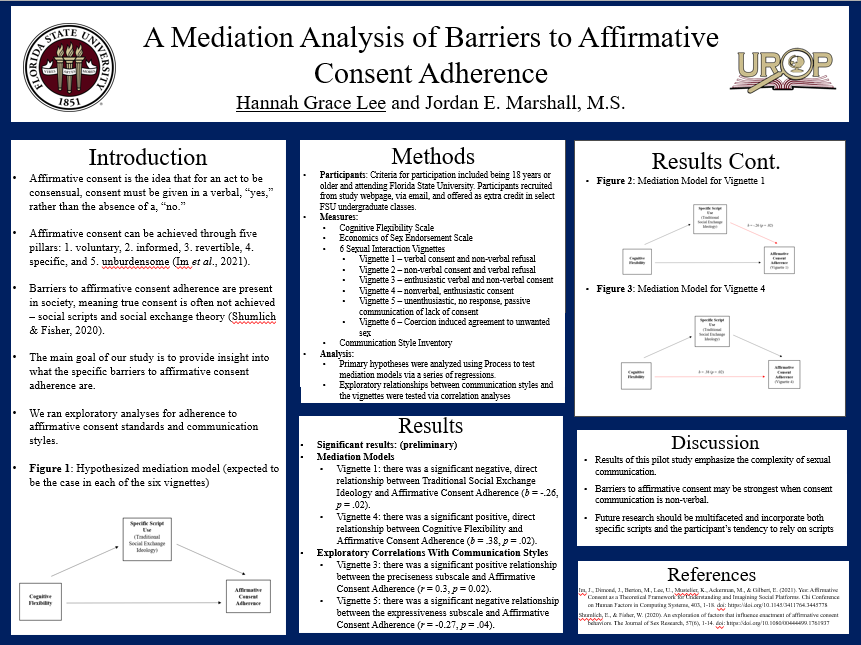Research Symposium
23rd annual Undergraduate Research Symposium, April 6, 2023
Hannah Grace Lee Poster Session 4: 4:00 pm - 5:00 pm/ Poster #218
BIO
My name is Hannah Grace Lee and I am from Sarasota, Florida. I am a second-year student at FSU pursuing a degree in cell/molecular neuroscience. Upon graduation in the summer of 2024, I plan on attending a graduate program in microbiology.
A Mediation Analysis of Barriers to Affirmative Consent Adherence
Authors: Hannah Grace Lee, Jordan MarshallStudent Major: Cell/Molecular Neuroscience
Mentor: Jordan Marshall
Mentor's Department: Human Development and Family Sciences Mentor's College: College of Health and Human Sciences Co-Presenters:
Abstract
Affirmative consent implies an enthusiastic and verbal “yes,” for sexual activities to be truly consensual. In our current culture, consent is often missed, or lack of a verbal “no,” is understood as consent. The aim of this pilot study is to understand the barriers to affirmative consent adherence in our current culture, including script use in a traditional social exchange ideology, meaning that we have preconceived scripts for different social situations. The methods we have employed are using a cognitive flexibility task switching paradigm, surveys, and vignettes to understand participants' attitudes towards gender roles, “hook-ups,” and consent attitudes and behaviors. Using mediation analyses, we will observe whether any statistically significant correlations exist between each inventory taken and affirmative consent adherence. Our results have illustrated that two of our six vignettes produced statistically significant data correlating traditional social exchange ideology with affirmative consent adherence and cognitive flexibility with affirmative consent adherence. Additionally, two vignettes produced significant data correlating certain communication style subscales with affirmative consent adherence. Ultimately, our conclusion is that the results of this pilot study emphasize the complexities of sexual communication. Our results indicate that affirmative consent barriers arise most significantly when consent is given non-verbally. Thus, verbal communication is crucial to the attainment of true consent. This truth is important when consent is often bypassed in our modern culture with the lack of a verbal, “no.”
Keywords: consent social psychology communication


